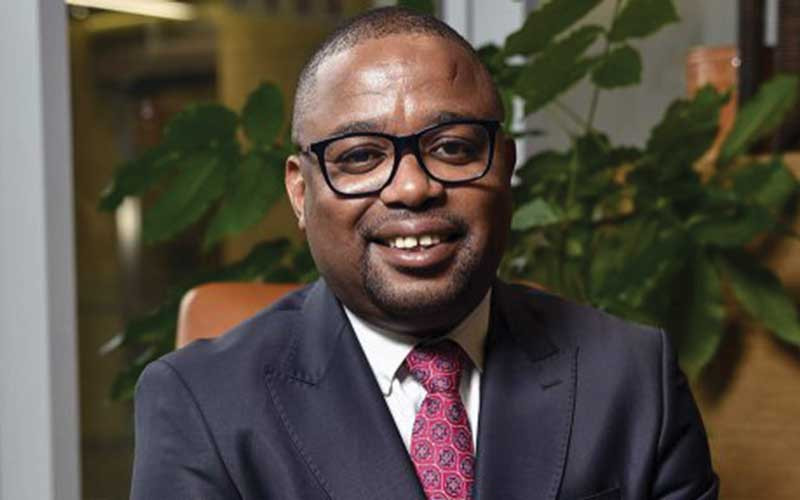
A DIASPORA-LED consortium that last year slapped the state-run National Railways of Zimbabwe (NRZ) with a US$236 million legal action has withdrawn its lawsuit citing “national interest”, the Zimbabwe Independent can reveal.
The Diaspora and Infrastructure Development Group (DIDG) filed its lawsuit after government cancelled a US$400 million deal that it had signed with the NRZ in 2017, with authorities claiming the private investor had no capacity to fund massive capital outlays required to rebuild the troubled logistics operator.
The cabinet’s move to terminate the deal followed the collapse of ties between DIDG and South African rail transporter, Transnet, which ended with authorities casting doubts over the consortium’s capacity to proceed.
DIDG was founded and incorporated in Zimbabwe and South Africa. It is largely led by Zimbabwean diasporans based in South Africa, but plans to expand its shareholder base.
Government sources said this week since DIDG took legal action last year, potential investors interested in NRZ had been sitting on the fence.
DIDG chairperson Donovan Chimhandamba confirmed this week that the firm had withdrawn its legal case.
“We are not prosecuting any further,” Chimhandamba told the Independent. “We lodged a declarator and we have not prosecuted.”
Government sources said DIDG had indicated that it would be withdrawing the lawsuit in the interest of the country.
- NRZ demands stiffer penalties
- Sadc railways commemorate safety week
- Interview: ‘Locomotive tourism’ back in style
- Another bailout deal beckons for NRZ…US$120 million on the table, says Mhona
Keep Reading
Another source said international financiers like China Exim-bank had already expressed concern over the impact the DIDG’s legal action would have on NRZ’s recovery prospects.
According to DIDG, regional banks, namely Afreximbank, Nedbank, Absa, Standard Bank, CBZ, Ecobank and TDB, together with asset and wealth management firms, including Old Mutual, Imara Asset Managers, National Social Security Authority and Harith Pan African Infrastructure Development Fund, had mobilised over US$1 billion for a recovery programme.
DIDG’s claim was for project costs and “reasonable profits” the company had projected to generate if the deal had come to fruition.
In February, Chimhandamba told the Standard that the group would evaluate the nation’s economic climate to decide whether it is still wise to pursue the case against NRZ.
“As you are aware, we filed a declarator in the High Court for an order declaring that the conduct of the NRZ was unlawful,” he said. “The lawsuit is still pending in our courts. It must be highlighted and understood that we did not seek damages against the NRZ. We don’t believe in a litigious process, especially against our own government or the NRZ, when it rather needs support to rebuild into the modern era of rail logistics.
“We definitely don’t believe one can implement the NRZ project while at the same time in court. In fact, a lot of things have since changed; Covid happened, ministry leadership has changed, regional logistics infrastructure surrounding Zimbabwe has also since changed and the rail industry has seen some consolidations, rationalisations while rail majors have changed their strategic outlook and business strategies.
“So, DIDG has to consider these and assess whether it is still strategic for it to pursue the lawsuit and also consider at the end of the day what's best in the interest of our beloved country and NRZ in particular,” Chimhandamba said.
In a letter dated September 1, 2022, by DIDG’s lawyers Atherstone and Cook, addressed to NRZ board chairperson Martin Dinha, the firm argued that the termination was irregular. DIDG said it would demand payment of damages from the NRZ within 10 days of the letter’s delivery.
The lawyers warned that if the amount was not paid within the given timeframe, DIDG would institute legal proceedings “without further notice”.
The NRZ last year said it was ready to defend the lawsuit.
The NRZ has been making frantic efforts to secure new investors for many years.
In 2019, the rail operator engaged Russia’s Union Wagons, as part of the programme, which is vital for raising up to US$1 billion. At its peak, the NRZ employed over 17 000 workers in the late 1980s. Today the firm’s staff complement has dropped to 4 600. The NRZ’s freight declined to 2,6 million tonnes in 2016 from 18 million tonnes in 1998.






